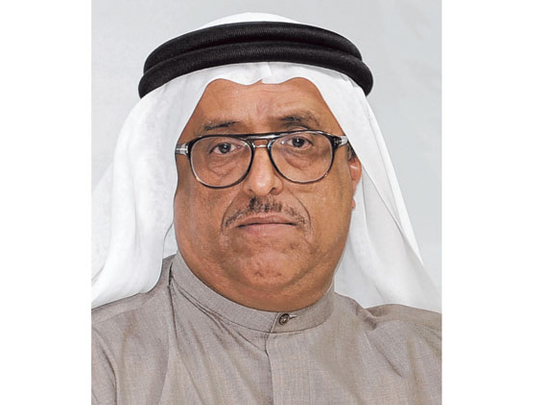
Dubai: Experts debated a statement by Lieutenant General Dahi Khalfan Tamim, Dubai Police Chief, who said that making victims of traffic accidents or crimes pay their medical bills is an illegal procedure and does not have any legal basis both locally and globally.
Lt Gen Dahi told the Arabic daily Emarat Al Youm that anyone taken by ambulance to a hospital must receive treatment for free at the government expense.
"They are not to blame for being involved in the accident. They are victims, whether it is through a traffic accident or a criminal act," he said, responding to a complaint by a woman who was charged Dh285,000 for treatment after she was stabbed during a robbery.
"It is strange how Rashid Hospital in Dubai charged these victims with exaggerated bills," he said.
The woman, Arab resident Shaima Ahmad, was stabbed by the thief who escaped. She was taken to Rashid Hospital where she underwent many surgeries to repair damage to her intestines. The hospital later asked her to pay Dh150,000 for the surgery, and Dh135,000 to the pharmacy.
"This is an illegal procedure that has not been adopted by the Dubai Government," said Lt Gen Dahi, who called on DHA to reconsider their procedures and make those who caused the accident, if present, pay the bill. He added that the practice of asking victims to pay the bills must be stopped.
Ahmad's employer told the newspaper that he doubted she would be able to pay the hefty bill, although she had to sign an undertaking to pay.
Yousuf Ebrahim, Director of Management and Financial Affairs at Rashid Hospital, said, "The accident section in the hospital receives those who were critically injured in accidents or those who were critically ill, and provides them with various types of emergency care without any payments, until their condition stabilises.
"Matters related to the bill are settled after the injured is done with the emergency care, and is admitted to other sections of the hospital," he added.
Treatment
Legal experts expressed two different opinions to Gulf News. Advocate Abdul Hamid Al Kumaiti of Al Kumaiti Advocates and Legal Consultants, agreed that the victims of accidents or violence should not pay for their treatment in government hospitals.
"Providing treatment for all nationals and residents should be free, especially those who arrive in critical condition, and the government hospital should offer all necessary treatment no matter what the cost was, to save the patient's life," Al Kumaiti said.
Government hospitals have police stations and should immediately inform them when they receive an accident or crime victim, he added. "All basic treatment to save the patient's life should be given free of charge, but if the hospital incurred additional costs for more treatment, such as fixing fractures, they can sue the party that caused the injuries to claim their money," he said.
Advocate Mohammad Ebrahim Al Shaiba of Al Bahar Advocates and Legal Consultants, had a different opinion. "Government hospitals should stabilise any patient who arrives at the hospital. They should save the patient's life, no matter what his nationality," he said, adding that asking hospitals to provide additional treatment free of charge is unheard of, here or in other countries.
"If you want to travel to Europe, for example, you have to provide a certificate of medical insurance to prove you are covered in case of emergency," he said.
While Al Kumaiti said the hospital must provide treatment and sue the causing party, Al Shaiba said the patient must pay the hospital, then he can file a lawsuit to reclaim the amount paid. "Here, the law guarantees the victim's right to file a case against the party causing the injury to claim his medical expenses and other damages, so he can pay the hospital for medical expenses," he said.
As an example, Al Shaiba cited the blood money (Diyya), which is usually paid by anyone who caused the death of a person (whether intentionally or accidentally) to that person's family.
Insurance
"This amount should be paid by the killer, not by the government, and so should the cost of medical treatment. It should be paid by the person who caused the injury and his insurance, if it was a car accident," he added. In Abu Dhabi, the Health Authority Abu Dhabi (HAAD) said that as per Article 9 of Implementing Regulation of Law No. (23) of 2005 concerning health insurance across the emirate of Abu Dhabi, authorised Health care Services Providers shall undertake to provide health care services to every insured or uninsured person in medical emergencies.
It may subsequently recover the cost of health care services from the authorised insurance company, in accordance with the health insurance policy, if the injured is insured.
The sponsor or employer shall undertake to meet the actual cost of health care in medical emergencies in the event that the injured is not insured, HAAD said in a statement.
Government or private medical facilities may not refrain from providing health care services in medical emergencies; otherwise they will be in violation of the Health Insurance Law, HAAD said.
If a person injured in an accident is insured against the accident by an insurance company in the State under any other insurance policy, the costs of health care services offered in connection with the accident will be recovered from this company, it added.
A spokesperson at SEHA Health System, which manages hospitals across the emirate of Abu Dhabi, said SEHA cannot speak for all the hospitals in Abu Dhabi, but only about SEHA and the SEHA Health System.
"Under the mandatory health insurance law in Abu Dhabi, all patients are required to present health insurance coverage at the registration time.
"In life-threatening and major emergency situations, this is neither appropriate nor practical," the spokesperson said.












